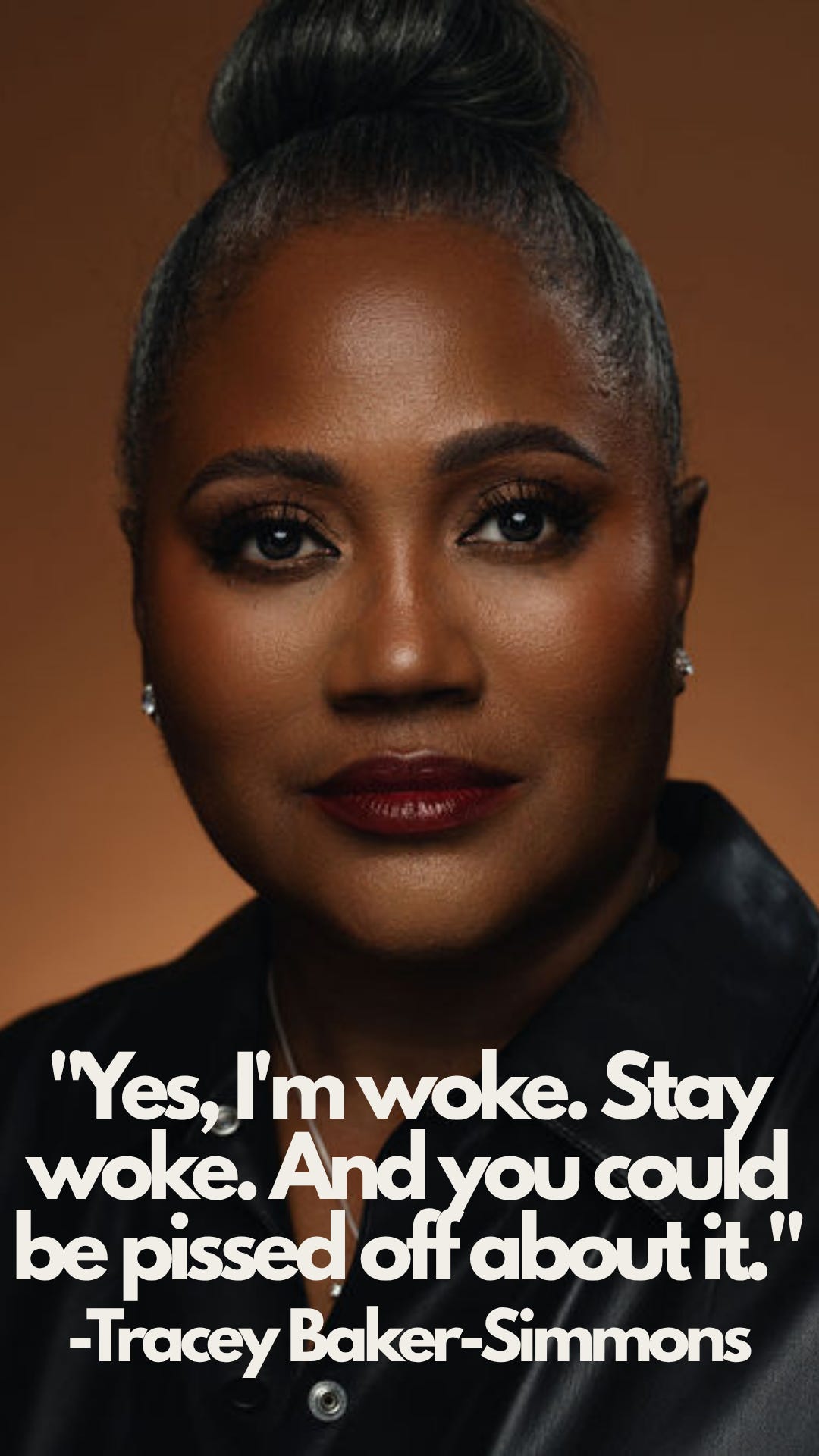Why I Am Not Apologizing for Being Woke
How consciousness became controversial and why that proves we need it more than ever
I remember when “stay woke” flooded our timelines. It wasn’t a slogan—it was a rallying cry. Those two words carried weight, signifying that you were aware, informed, and unafraid to see through the BS that others chose to ignore. Finally, we had language that encouraged speaking up and staying aligned with what was right. Being woke meant you refused to sleepwalk through injustice.
But somewhere along the way, the word got hijacked. What started as a call for awareness became a political weapon, twisted into something dirty and shameful. Suddenly, being “woke” was treated like a curse, a code word that often seemed to really mean “too Black, too loud, too aware for comfort.” The same consciousness that once empowered us to call out inequity was rebranded as extremism.
Here’s what being woke actually means: it’s the state of being alert to and actively attentive to important societal facts and issues, especially issues of racial prejudice and discrimination. It’s about recognizing systemic inequalities that others might overlook or dismiss. It’s understanding that awareness without action is just performance, but action without awareness is just noise.
As a producer, being woke isn’t just personal—it’s professional responsibility. Every image I put on screen, every story I choose to tell, every voice I amplify carries weight. Media shapes perception, and perception shapes reality. When I’m behind the camera, being woke means asking hard questions: Whose stories am I telling? What perspectives am I centering? What harmful narratives am I perpetuating or dismantling?
Being woke in media means understanding that representation isn’t just about checking boxes—it’s about creating authentic, complex portrayals that honor the full humanity of all people. It means recognizing that the stories we don’t tell are just as powerful as the ones we do. It means refusing to hide behind “entertainment” when your work has the power to influence how people see themselves and others.
This consciousness isn’t a privilege we can afford to abandon when it becomes politically inconvenient—it’s our duty. When awareness becomes controversial, when consciousness gets weaponized, when caring about justice gets turned into a political slur—that’s exactly when we need to dig deeper, not retreat.
I reserve the right to be woke because I reserve the right to create with intention. If that makes me “woke,” then I’ll wear that label with pride, knowing that staying awake in my work means staying accountable to the power I hold.



